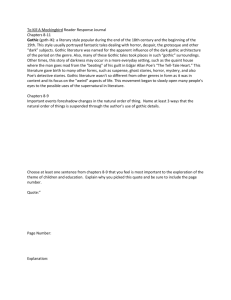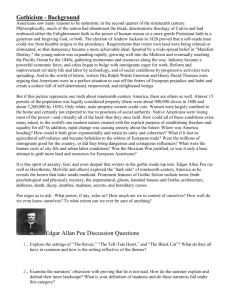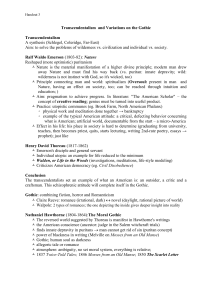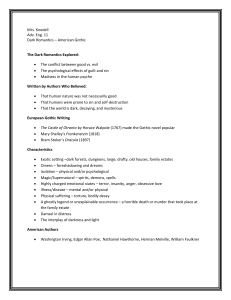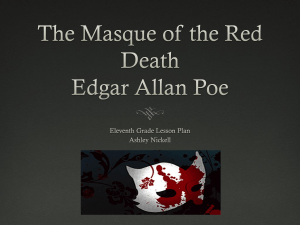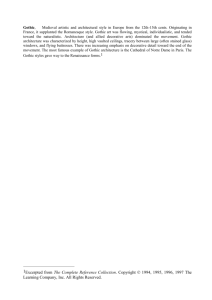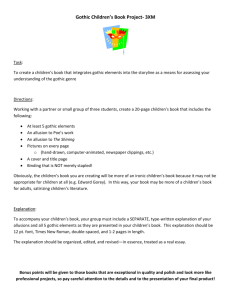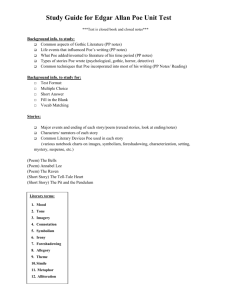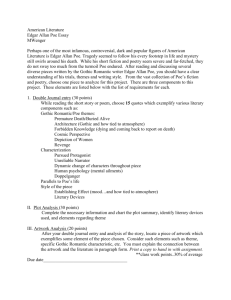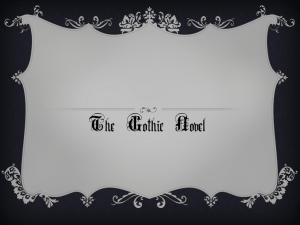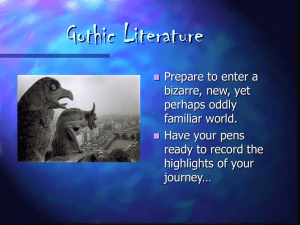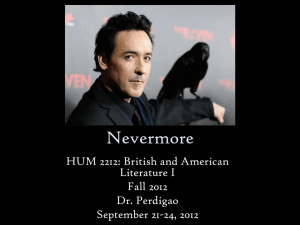the_masque_of_the_red_death_by_edgar_allan_poe.doc
advertisement
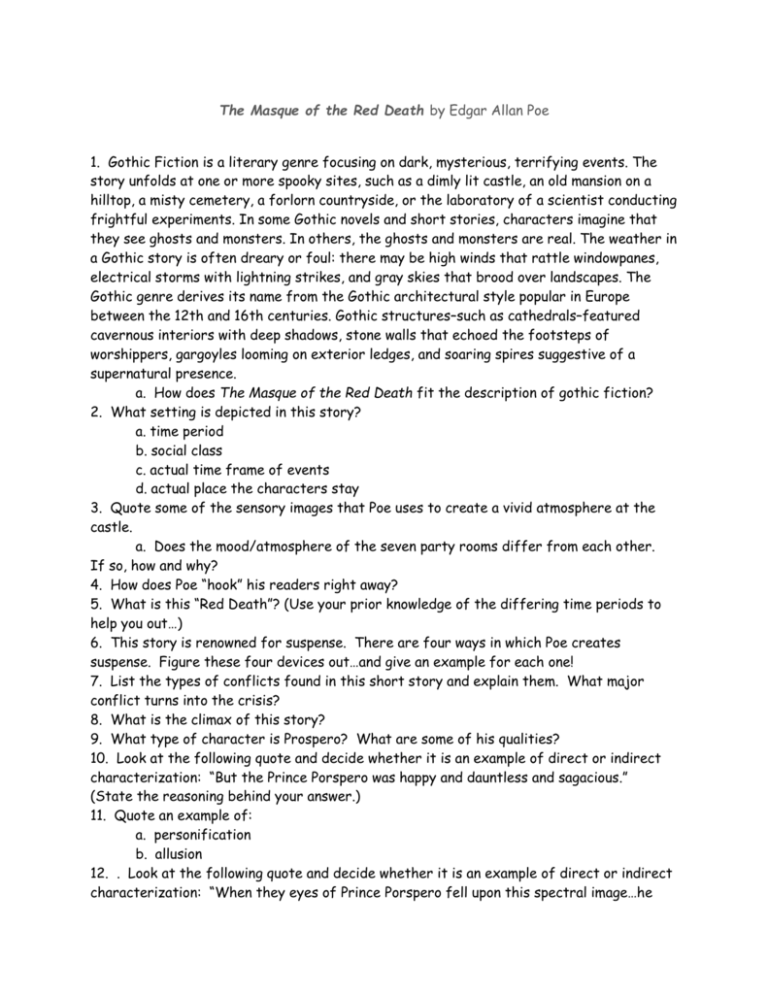
The Masque of the Red Death by Edgar Allan Poe 1. Gothic Fiction is a literary genre focusing on dark, mysterious, terrifying events. The story unfolds at one or more spooky sites, such as a dimly lit castle, an old mansion on a hilltop, a misty cemetery, a forlorn countryside, or the laboratory of a scientist conducting frightful experiments. In some Gothic novels and short stories, characters imagine that they see ghosts and monsters. In others, the ghosts and monsters are real. The weather in a Gothic story is often dreary or foul: there may be high winds that rattle windowpanes, electrical storms with lightning strikes, and gray skies that brood over landscapes. The Gothic genre derives its name from the Gothic architectural style popular in Europe between the 12th and 16th centuries. Gothic structures–such as cathedrals–featured cavernous interiors with deep shadows, stone walls that echoed the footsteps of worshippers, gargoyles looming on exterior ledges, and soaring spires suggestive of a supernatural presence. a. How does The Masque of the Red Death fit the description of gothic fiction? 2. What setting is depicted in this story? a. time period b. social class c. actual time frame of events d. actual place the characters stay 3. Quote some of the sensory images that Poe uses to create a vivid atmosphere at the castle. a. Does the mood/atmosphere of the seven party rooms differ from each other. If so, how and why? 4. How does Poe “hook” his readers right away? 5. What is this “Red Death”? (Use your prior knowledge of the differing time periods to help you out…) 6. This story is renowned for suspense. There are four ways in which Poe creates suspense. Figure these four devices out…and give an example for each one! 7. List the types of conflicts found in this short story and explain them. What major conflict turns into the crisis? 8. What is the climax of this story? 9. What type of character is Prospero? What are some of his qualities? 10. Look at the following quote and decide whether it is an example of direct or indirect characterization: “But the Prince Porspero was happy and dauntless and sagacious.” (State the reasoning behind your answer.) 11. Quote an example of: a. personification b. allusion 12. . Look at the following quote and decide whether it is an example of direct or indirect characterization: “When they eyes of Prince Porspero fell upon this spectral image…he was seen to be convulsed, in the first moment with a strong shudder either of terror or distaste; but, in the next, his brow reddened with rage. ‘[W]ho dares insult us with this blasphemous mockery? Seize him and unmask him-that we may know whom we have to hang at sunrise, from the battlements!’” (State the reasoning behind your answer.) 13. What purpose does the ebony clock have in this story? 14. This story is peculiar in that it flips in its point of view. Can you figure this out? How is the story narrated in the beginning? When does it switch? Why is this? 15. What type of irony is present in this story? 16. The author’s tone could be considered satirical. Who/what is Poe satirizing? 17. What is significant about the Prince’s name? 18. Explain a prevalent theme found in this story. 19. Who is the protagonist? Who/what is the antagonist? 20. What is a stock character? Is there a stock character in this story? If so, who? 21. Dissect Poe’s writing style. a. What type of language does he use? b. How much of his language is connotative? c. What effect does the punctuation, word choice and sentence structure have on the reader’s interpretation of events? 22. We can read this story as an allegory about life and death and the powerlessness of humans to evade the grip of death. Explain this viewpoint.
